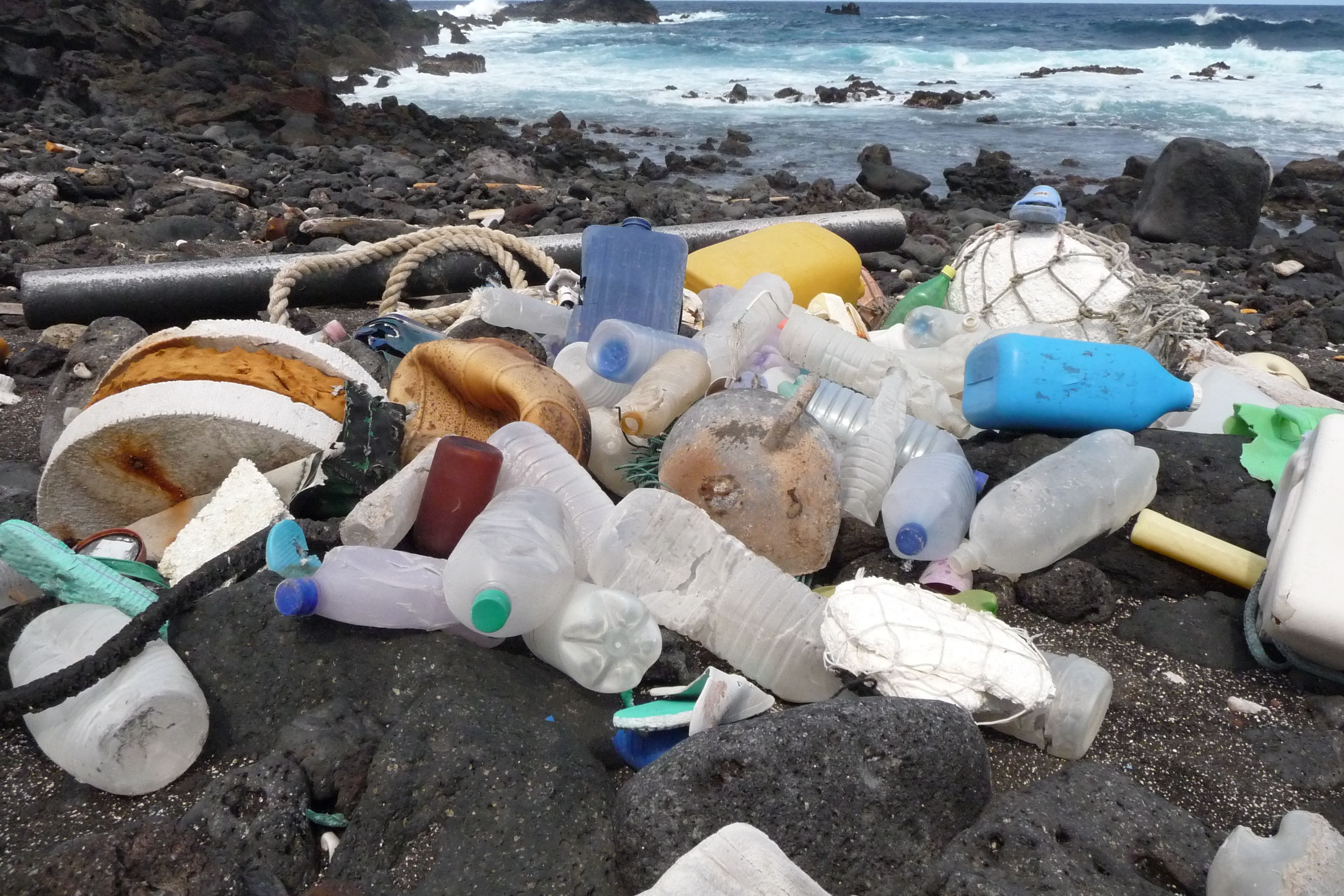UN called on to set target of zero new plastic pollution by 2040
The call comes while leaders discuss plastic pollution and its role in climate change at the Cop27 summit in Egypt.

Your support helps us to tell the story
From reproductive rights to climate change to Big Tech, The Independent is on the ground when the story is developing. Whether it's investigating the financials of Elon Musk's pro-Trump PAC or producing our latest documentary, 'The A Word', which shines a light on the American women fighting for reproductive rights, we know how important it is to parse out the facts from the messaging.
At such a critical moment in US history, we need reporters on the ground. Your donation allows us to keep sending journalists to speak to both sides of the story.
The Independent is trusted by Americans across the entire political spectrum. And unlike many other quality news outlets, we choose not to lock Americans out of our reporting and analysis with paywalls. We believe quality journalism should be available to everyone, paid for by those who can afford it.
Your support makes all the difference.A UK team of experts which advises the United Nations, G20 and World Bank has called for a zero target to be set for new plastic pollution by 2040.
Professor Steve Fletcher, director of the Global Plastics Policy Centre at the University of Portsmouth, has made the plea for the UN to make the “bold pledge” in its upcoming Global Treaty To End Plastic Pollution.
The call comes while leaders discuss plastic pollution and its role in climate change at the Cop27 summit in Egypt.
The team from the Hampshire university have advised the United Nations Environment Programme, G20 and the World Bank on plastic policy, including the possible structure and content of a global agreement to tackle plastic pollution.
Plastic is extremely useful, but mismanagement has led to a global pollution crisis that is exacerbating climate change
Writing in the journal Nature Reviews Earth And Environment, Prof Fletcher said: “The treaty’s target must be ambitious and meaningful, we are calling for the UN to aim for a minimum goal of 0% new plastic pollution by 2040.
“To achieve this, policymakers, businesses, researchers and wider society must go beyond the existing best available technology and practice and be radical in their thinking to develop a coordinated global strategy to tackle plastic pollution.”
He added: “The Global Plastic Treaty needs a target that is clearly defined. At present, there is ambiguity about what ‘ending plastic pollution’ actually means. For the treaty to work it’s vital for there to be a single target and an agreed strategy.”
Lead author Antaya March said: “Plastic is extremely useful, but mismanagement has led to a global pollution crisis that is exacerbating climate change.
“A complete transformation to a circular plastics economy is needed to radically reduce or eliminate plastic pollution while supporting necessary use.”
The team say that while nearly 200 nations are committed to the development of the treaty, each country has different financial, social and political priorities and obstacles.
Ms March added: “Plastic value chains typically pass through multiple jurisdictions with different laws, rules and norms.
“At best, country-specific policies, such as bans on specific plastic products, do not have the reach to meaningfully affect global drivers of plastic pollution.
“At worst, they create international legal and policy inconsistencies that push plastic waste to places with the least capacity to deal with it safely.
A system change needs to arise that fundamentally alters the way we behave and interact with plastic
“It is estimated that current commitments to tackle plastic pollution will only decrease plastic entering the environment by approximately 7% by 2040 compared with business as usual. This is why we need an ambitious target that all nations can work towards.”
Prof Fletcher added: “It is a huge achievement that the development of a global legally binding treaty by the UN to end plastic pollution is under way.
“But to be effective, the global treaty requires new levels of transparency, disclosure and cooperation to support evidence-based policymaking that avoids the fragmented and reactionary policies of the past.
“A system change needs to arise that fundamentally alters the way we behave and interact with plastic.”